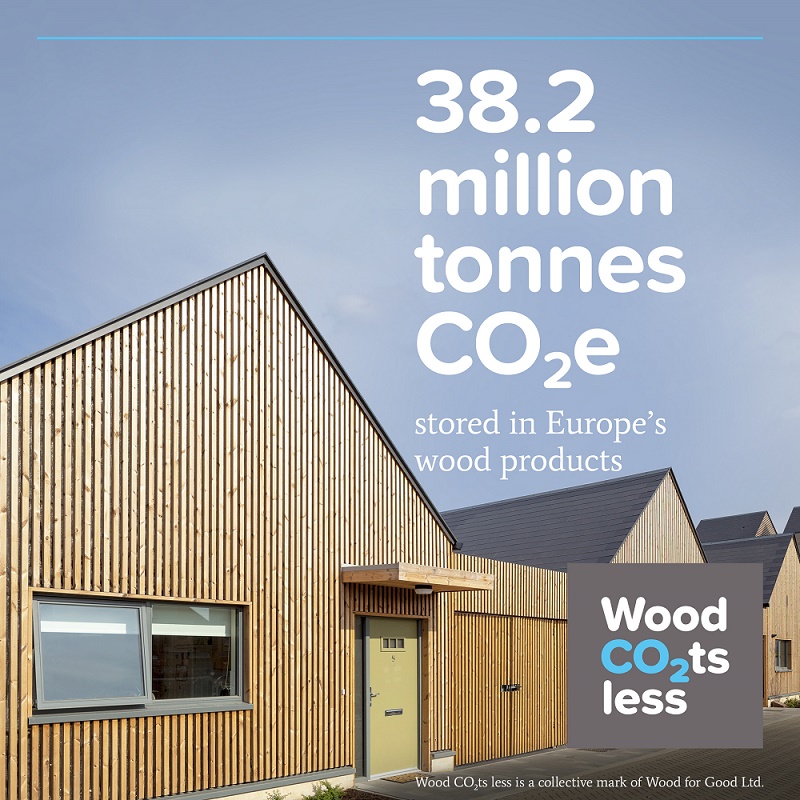By Sarah Virgo, Wood for Good Campaign Manager
Earth Overshoot Day is the day on which humanity’s demand officially exceeds the amount of natural resources that our planet can regenerate in a year. This year, that day is August 22nd, an improvement of almost an entire month on 2019’s date of 29th July.
However, this small improvement has not been caused by mass decarbonising of key industries, a tax on big emission hitters, or a global reduction in our consumerism of materials. It is a by-product of a global lockdown.
There is a growing appetite across government, the public and businesses to assist in the task of reducing our CO2 emissions in the UK and fighting the effects of climate change. Whilst there is a desire to help, there is still a lack of knowledge on what the exact actions are that can and should be taken to help reduce CO2 emissions.
The timber and forestry industry is perfectly placed to play a pivotal role in aiding the UK in reducing carbon emissions. This role starts with forestry, and an urgent need to plant more trees. The UK Government has recognised this in its repeated promises to plant 30,000 hectares every year by 2025. But we need to ensure that we are planting the right kind of trees and at the right pace, to help increase the amount of carbon being captured by UK forests.
In addition to increased forest cover, the timber industry plays a vital role in capturing and storing carbon in its products. Timber products contribute to a reduction of CO2 in three ways:
Building with more timber products allows buildings to become long-term carbon stores, rather than emitting further CO2.
These facts form the basis of Wood CO2ts less, a campaign launched by Wood for Good in July to promote the key role timber can play in reducing CO2 emissions and fighting climate change. Through promoting these facts, and the evidence behind them, the campaign aims to encourage legislators, planners, local authorities, developers, architects, and contractors to consider using wood first to meet carbon targets.
To achieve this, we must work together to promote the Wood CO2ts less message across the supply chain. The message of the campaign is inclusive to the entire industry, from trees planted and harvested, to wood products used in construction – from structural beams to window frames – or pallets used in packaging.

The campaign is supported by industry bodies Swedish Wood, Confor, the British Woodworking Federation (BWF), the Timber Trade Federation (TTF) and Structural Timber Association (STA), together with others in the timber industry such as Vastern Timber, James Jones and BSW Timber. It is an opportunity for the timber industry to come together to shout about the environmental benefits of wood and showcase the positive change that the industry can represent for the UK in its journey to net-zero.
Wood for Good, in collaboration with Swedish Wood, has created a suite of marketing assets for the Wood CO2ts less campaign, all presenting different facts and figures that evidence timber’s low-carbon qualities. These have been made available to Wood for Good supporters through an online members’ area, allowing the industry to promote the sustainability message of timber for their organisation, as well as staying up-to-date and connected with the campaign and its supporters.
If you are proud of the industry you work in and want to be a part of a positive change, find out more or get involved in the campaign by contacting Wood for Good campaign manager, Sarah Virgo, at sarah.virgo@woodforgood.com or head to the toolkit at www.woodforgood.com/CO2